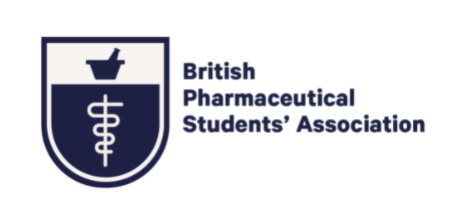Insight: Diabetes UK
My name is Charles Odiase, presently the Consultant Pharmacist in Primary Care and Diabetes for Dacorum GP federation, Hertfordshire. My path to the latter has been a journey I often refer to as 'the road less travelled.' I completed my MPharm degree from the University of Bradford and wanted a postgrad path with longevity, something less subjective and inclusive of standardised objective assessment of competence like OSCEs and written exams.
I started my career journey as a community pharmacy counter assistant, a dispenser and then qualified as a regular locum community pharmacist. I took a pay cut by accepting a rotational pharmacist role at the Sheffield Teaching hospitals, it was there my interest in diabetes and acute admissions specialist areas were seeded. I decided to complete my postgrad MSc in hospital clinical pharmacy from Bradford University to build up my generalist clinical knowledge. I moved to Hampshire to take up a lead acute admissions specialist role, and got the opportunity to complete my independent non-medical prescribing course at the University of Reading. I was supported by my medical acute admissions and diabetes consultant.
To further develop my specialist skills and knowledge, I decided to complete a validated training of quality for my generalist and diabetes specialist areas therefore completed a MSc in diabetes from the Leicester diabetes centre and University of Leicester covering all subject matters of diabetes from screening, emotional health, prevention to complications avoidance and management. I simultaneously completed a postgrad diploma in Advanced Practice in Urgent Primary Care from the De-Montfort University where I gained competencies in clinical assessment and examination, minor ailments etc. Both degrees had compulsory elements of working in practice in an MDT setting, and completing assessed essays, exams, OSCEs and final sign-off by medical mentors at GP level. We all often experience the impostor syndrome, but I stay confident knowing I have undertaken a training pathway that is academically and clinically MDT peer validated.
Once I completed my trainings, I took on a medicine optimisation role at West Leicestershire CCG, before moving fully into General Practice where I was fortunate to become the diabetes and prescribing lead for my practice. In 2017 I became a Diabetes UK Clinical Champion which is a 2 year leadership training programme specific to diabetes care delivery. It brings together the best of the best diabetes multidisciplinary professionals, from podiatry to emotional health; at present there are only 4 pharmacists out of approximately 80 Diabetes UK clinical champions. I became the first Pharmacist on the Diabetes UK professional conference organising committee and a primary care course Co-chair. I represent Pharmacy on an expert advisory panel called IDEAL and our aim is to improve the experience of people living with diabetes (PLWD) via the sharing of best and safe practices. I am also consulted by various organisations to deliver diabetes training and mentorship to different groups of pharmacists nationally.
Incorporating Pharmacists into general practice was inevitable, and let's not forget the many pharmacists who already worked in general practice for years without the limelight. As an undergraduate, I knew it would one day be the ‘new black,’ it’s a role that needs further and constant structure review of training development, salaries and workload management. I think once general practice becomes a main pre-registration sector, a validated postgrad training structure will quality assure the sector. Community pharmacy has to adapt, it has to accept the inevitable which is the old is gone a new must come in more clinical services. All pharmacists are clinical, but I accept there are variations in levels of clinical expertise which is more to do with postgrad training undertaken than to do with what sector one is based. CCG pharmacists are invaluable and personally I feel we need that specialist area to flourish. There is a danger we could lose them to the world of general practice, and yet they bring a unique set of skills and perspective to care delivery that is necessary. CCG MOT pharmacists often get so much bad press, but in reality they are making those difficult controversial objective sometimes critical decisions no one else has the heart to make despite situations necessitating it.
My consultant role is evolving and I am learning as I go along, in my opinion a consultant pharmacist role isn't a clinical role like medics but rather a strategic leadership role. We don't own the job title as medics do instead the job post owns the title so if one move jobs or retires the individual is no more referred to as a consultant pharmacist. The post is at the employer's discretion and in truth not a ‘protected’ title as there isn't any statutory or legal reason(s) why anyone couldn't use it like in the fields of social and pure sciences. I thrive to make the best of the role and presently run clinics, support all HCPs, offer MDT generalist and diabetes specific training, and push pharmacy related agendas. I am also a PhD student clinical practice supervisor looking into projects that improve population health and PLWD biopsychosocial and biochemical outcomes.
Diabetes UK is first and foremost the leading Diabetes charity in the UK, the mission is huge but in a nutshell creating a world where diabetes can do no harm. I serve the charity in multiple capacities as previously mentioned, but ultimately my role and goal aim at improving the status of pharmacy by improving PLWD experience and satisfaction via pharmacist-led or associated interventions. My humble advice to students is adapt resilience because you will surely need it, don't be afraid to do it differently because the norm was once the unacceptable. Dare to take a road less travelled as shortcuts often enhance the impostor syndrome. Permit yourself to dream and when I say dream I mean be able to see beyond what you see; don't let a fail lure you into becoming a failure.

